Turkish decomposed. The left protects national minorities and get combat experience in Syria
- areas where the Democratic Party of Peoples has won are highlighted in purple
Finally, the southeastern and eastern regions of Turkey, populated by Kurds, and the central regions of eastern Turkey, where the people of Zaza (the smokes) live compactly, most of whom are Alevis, are traditionally considered to be the base of left-wing parties. In the last election, people voted for the Democratic Party of Nations (Halkların Demokratik Partisi, HDP), which is considered left-wing and pro-Kurdish. The Democratic Party of Nations is trying to protect the interests of all minorities in the country, which include not only the Kurds, but also Zaza, the Alevis, the Armenians, the Assyrians. During the election campaign, Recep Erdogan called it "the party of homosexuals," because the HDP opposes discrimination, including sexual minorities.
In fact, the Democratic Party of Peoples is a legal left party that unites a moderate part of the Turkish left and radical left organizations. It demonstrates the focus on the development of dialogue between various organizations of the left spectrum of the Turkish political field, as well as organizations of national and cultural minorities of the country. Interestingly, the idea of creating such a common party belongs to the imprisoned leader of the Kurdistan Workers' Party, Abdullah Ocalan. It was Ocalan, who studied various modern left-wing theories in prison, came to the conclusion that it was necessary to create such a force that could unite not only the Kurds, but also all other peoples discriminated by the Turkish government. History The Democratic Party of Nations began in 2012, when the party was founded as the political wing of a broad anti-capitalist coalition - the Democratic Congress of Nations.
The congress, in turn, included the following political organizations: 1) The Party of Peace and Democracy - the political party of the Kurds; 2) The Party of Socialist Democracy - supporters of democratic socialism, isolated from the left Party of Freedom and Solidarity; 3) The green and left party of the future is a social and environmental organization; 4) Revolutionary Socialist Workers Party - Trotskyist organization; 5) The Socialist Renaissance Party is a Marxist-Leninist organization; 6) Workers Party - Maoist organization; 7) The Socialist Party of the Oppressed is another Maoist organization, as well as a whole range of feminist and human rights organizations, trade union associations, non-governmental organizations of Armenians and Pomaks (Pomaks are Muslim Bulgarians living in a number of localities in Turkey).
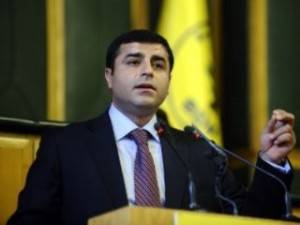 The main goal of the Democratic Party of Nations was proclaimed the struggle against national, religious, racial and gender discrimination. For this very purpose, the party has reserved 50% seats for women and 10% seats for sexual minorities in the election lists. Also in the party reserved seats for national minorities - not only Kurds and Zaza, but also Armenians, Assyrians, Azerbaijanis, Laz, Circassians, Greeks, Pomaks. At the head of the Democratic Party of Nations were very charismatic politicians - Selahattin Demirtas - the leader of the Kurdish Peace and Democracy Party, and the leader of the left-radical Socialist Party of the Oppressed Figen Yuksekdag, known for his appearances against the government.
The main goal of the Democratic Party of Nations was proclaimed the struggle against national, religious, racial and gender discrimination. For this very purpose, the party has reserved 50% seats for women and 10% seats for sexual minorities in the election lists. Also in the party reserved seats for national minorities - not only Kurds and Zaza, but also Armenians, Assyrians, Azerbaijanis, Laz, Circassians, Greeks, Pomaks. At the head of the Democratic Party of Nations were very charismatic politicians - Selahattin Demirtas - the leader of the Kurdish Peace and Democracy Party, and the leader of the left-radical Socialist Party of the Oppressed Figen Yuksekdag, known for his appearances against the government. The forty-three-year-old lawyer Selahattin Demirtas, a native of Zaza, due to his charisma and political activity, quickly became one of the most recognizable figures of the Turkish leftist policy. In 2011-2012 he led the civil disobedience of Turkish Kurds, repeatedly criticized Recep Erdogan’s policies not only for Turkish Kurds, but also for neighboring Syria. Figen Yuksekdag, a 45-year-old left-wing social activist, was born in a Kurdish religious family with ten children. After Yuksekdag was arrested at the May Day demonstration when she was a student at the gymnasium, her relationship with her conservative parents was upset, and she left home, starting an independent life. Yuksekdag gained fame for her performances in defense of women's rights. In 2009, she was arrested and held in prison until 2010, and after her release, Yusekdag created the Marxist-Leninist Socialist Party of the oppressed.
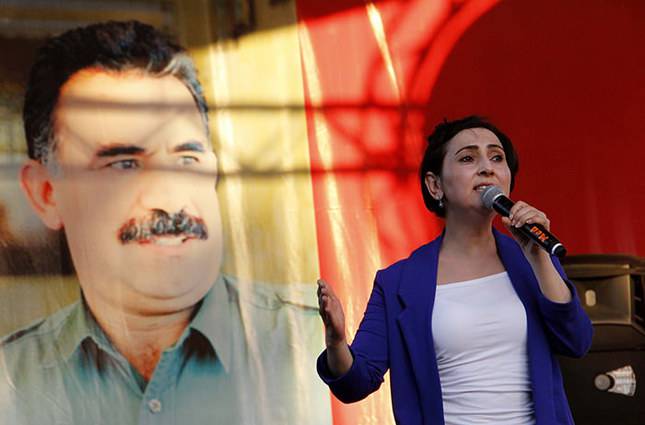
The modern Turkish history knows many attempts by the Kurds to acquire their own legal party, which could lobby for their interests in the legislature and act as a kind of “political roof” for more radical associations, including the Kurdistan Workers' Party. As the political wing of the Kurdish resistance, they initially perceived the Democratic Party of Nations, but then it became clear that this party was a much more modern and interesting project. The perspective of the party is primarily due to the fact that its leaders tried to go beyond the purely Kurdish issue and put on the agenda the problem of observance of the rights of all minorities of Turkey - national, religious and even sexual (although the last topic was tabooed for a long time Turkish politics).
In a country where decades of Kemalism, which affirmed the principle of “one state - one nation”, were replaced by a religious-conservative turn after Recep Erdogan and his Justice and Development Party came to power, the protection of minority rights is very difficult and dangerous, but at the same time and the necessary thing. After all, those same Kurds, Zaza, not to mention the Armenians or Assyrians, are subjected to severe discrimination by the Turkish authorities, which is based on the policy of denying the right of these peoples to national identity. The fact that the Democratic Party of the Peoples spoke about the rights of all the national, religious and cultural minorities of Turkey without exception has provided it with support in the most diverse sectors of Turkish society. The left intelligentsia of Turkish large cities, radical youth from subcultures, and workers preoccupied with their socio-economic situation are voting for it, but the basis of support for the Democratic Party of Nations is still the Alevis and ethnic minorities of Eastern and South-Eastern Turkey - Kurds, Zaza, Armenians, Assyrians. Already in the parliamentary elections in 2015, the Democratic Party of Peoples demonstrated significant success. The party received 13,12% of the total number of all votes cast and gained the support of 6 million 280 thousand voters. Abroad, the party ranked second in the elections and received support from 20,41% of voters. This is explained by the fact that Zaza, Kurds and Alevis, as well as representatives of secular intelligentsia, constitute a significant part of Turkish emigration in Europe. As a result, 80 deputies from the Democratic Party of Peoples passed to the Turkish parliament, which made it possible to form an impressive opposition faction and prevent Recep Erdogan from establishing even more authoritarian rule.
Of course, the activities of the Democratic Party of Nations do not like the Turkish authorities, who constantly accuse them of supporting “terrorists”, to whom Erdogan attributes the Kurdistan Workers' Party and radical leftist groups, to pro-Armenian sentiments, to undermine the foundations of national culture and religion. Erdogan and his supporters cannot forgive the Democratic Party of Nations and the consistent position on the Armenian genocide. Party leader Selahattin Demirtas repeatedly spoke of the need to recognize responsibility for the Armenian genocide, and when the Bundestag of Germany recognized the genocide, Demirtas stated that this decision of the German parliament was “late for 100 years” and is no longer a sanction for Turkey. In April, 2016, Mr. Demirtas, in one of the speeches, reminded Erdogan that before the arrival of the Seljuk Turks, Armenians and Kurds lived in the Anatolian highlands.
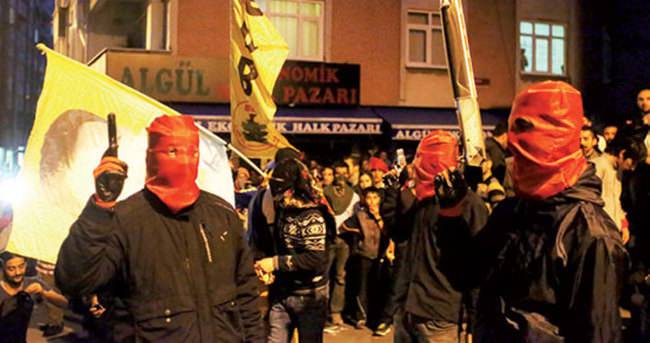
The intensification of left-wing forces in Turkey testifies to the further aggravation of the split of Turkish society, which had not previously been distinguished by unity. The policy of Erdogan led to the fact that in the south-east of Turkey, a civil war between government forces and armed groups of Kurdish rebels and left-wing radical organizations is already in full swing. But other regions of the country are on the verge of large-scale confrontation between left and right forces, between national minorities and communists on the one hand, and religious fundamentalists on the other. Besides the Kurdish national movement, today with weapons in the hands of the government of Erdogan, leftist radical organizations of the communist persist.
Although the communist movement in Turkey emerged in the first half of the twentieth century, most modern left-wing organizations in Turkey, especially those that declare a course of armed resistance, in ideological and organizational terms go back to the revolutionary upsurge of the end of 1960 - beginning of 1970. Then the world wave of “venting” and radicalization of youth covered not only Europe and the USA, but also many other regions and countries of the world, including Turkey. Turkish left-wing radicals spoke primarily against American imperialism and the pro-American policies of the Turkish governments. Without thinking, the young Turkish Communists turned to methods of warfare - expropriation, attacks on American diplomats and military personnel.
The leaders of the Turkish left-radical movement of those years - Deniz Gezmish, Mahir Chayyan, Ibrahim Kaypakkaya, Yusuf Aslan, and Hüsein Inan - today are revered by the young generation of Turkish communists and socialists as real icons of the revolution, martyrs of the anti-imperialist struggle. All of them were either executed by tribunal sentences, or died in gunfights with police and dungeons of Turkish prisons. But the brutal measures of the authorities could not put an end to the radicalization of the Turkish youth. In 1970 - 1980 - s. a number of new radical left organizations were created, cooperation of radical communists with the Kurdish national liberation movement was established.
Today, Turkish ultra-leftists are fighting in Syrian Kurdistan on the side of the Kurdish Popular Self-Defense Detachments. But also on the territory of Turkey itself they intensified their actions. Among the most active organizations, first of all, it is worth noting the Maoist Turkish Communist Party / Marxist-Leninist (Türkiye Komünist Partisi / Marksist-Leninis, TKP / ML). It was created in 1972, by Ibrahim Kaipakkaya (1949-1973), later shot in prison. This organization, which is active among young people, has its own armed wing - the Turkish Workers 'and Peasants' Liberation Army (Türkiye İşçi Köylü Kurtuluş Ordusu, TIKKO), which is fighting now in Syrian Kurdistan and periodically holds its shares in Turkey itself. Another serious organization is the Revolutionary People’s Liberation Party-Front (Devrimci Halk Kurtuluş Partisi-Cephesi, DHKP-C), which adheres to Marxist-Leninist ideology and closely cooperates with the Kurdish movement. In 2014, a number of smaller revolutionary organizations united into the Joint Liberation Force (Birleşik Özgürlük Güçleri, BÖG) fighting in the territory of Syrian Kurdistan. In the so-called “international squads” in Syria, Turkish volunteers, and these are men and women from left and left-wing radical organizations, get real combat experience. Of course, the number of firearms and explosives, which are in the hands of the Turkish radical communists, is also growing. Both these weapons and the combat experience of the fighters of left-wing radical organizations transfer to the territory of Turkey itself. Here, not only in the provinces of Turkish Kurdistan, but throughout the country, the number of underground cells is growing, and the actions of the left are becoming more and more radical.
Of course, to say that a “red revolution” can occur in Turkey, this means flattering the not so powerful communist movement of the country. But it is impossible not to draw attention to the growing activity of the Turkish left, who are increasingly annoying the Erdogan regime. In the present situation, the left-radical movement of Turkey should be perceived, rather, not by itself, but as an important ally of the Kurdish national movement. It is the left that provides support for part of the Turkish public, primarily the Alevi, Kurdish national movement. In the event of further strengthening of the national liberation struggle in Turkish Kurdistan itself, the actions of the radical left in Istanbul, Ankara and other cities and regions of Turkey will be very helpful. On the other hand, the activities of such legal structures as the Democratic Party of Peoples, which advocates minority rights, allows both the Kurdish national movement and the Turkish left opposition to secure the sympathetic attitude of the European Social Democratic parties and the European public in general.
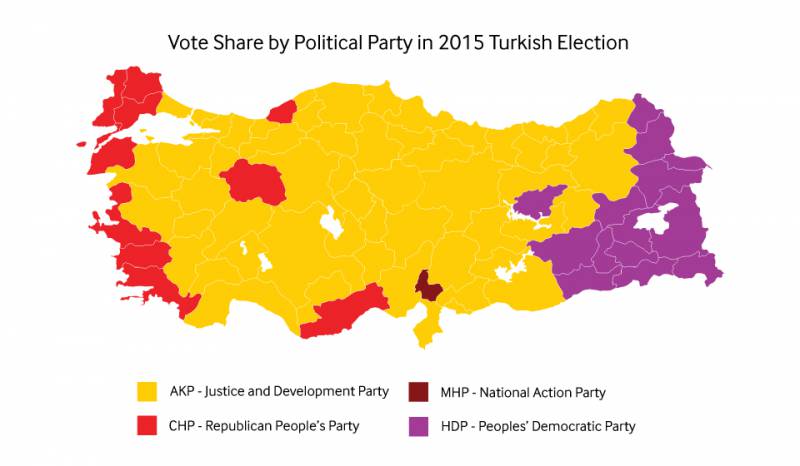
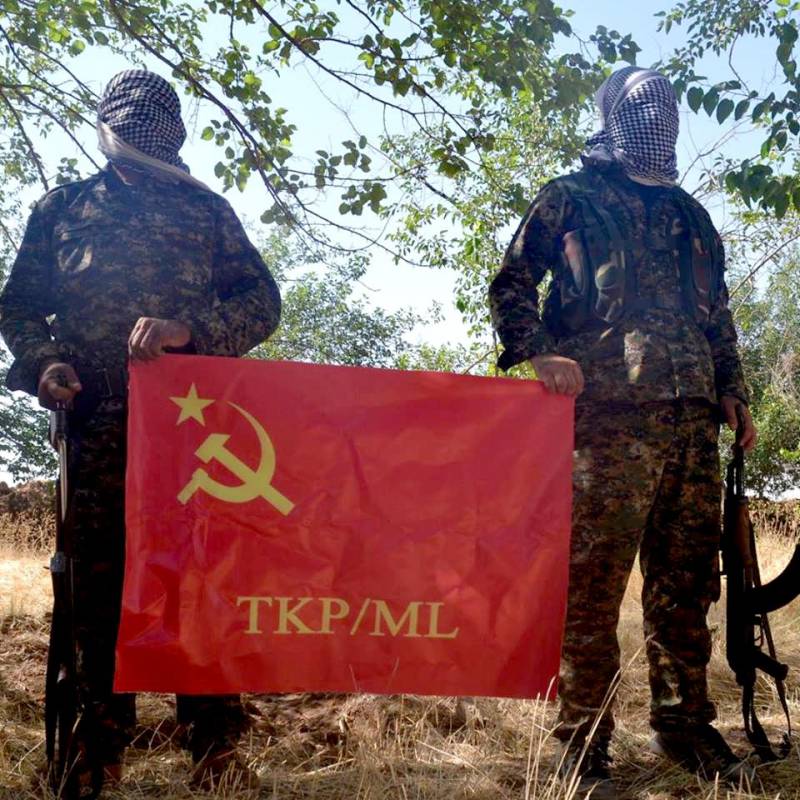
Information